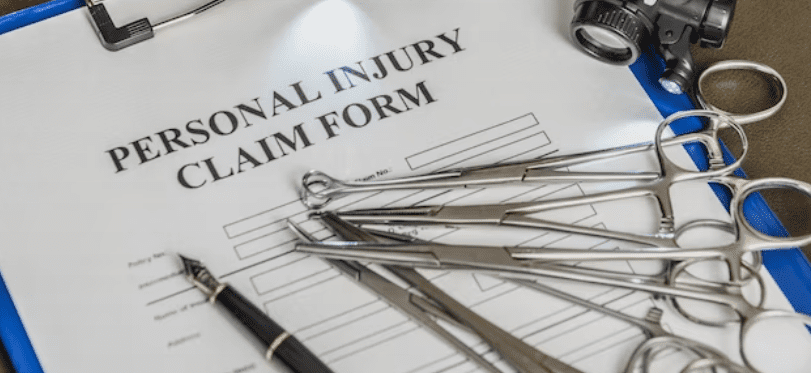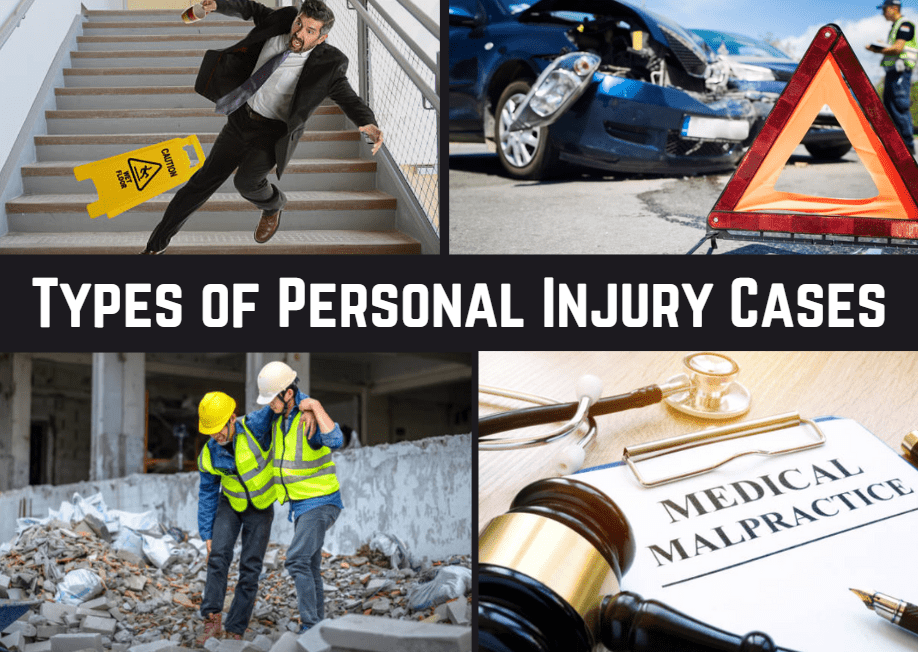
What are Personal Injury Cases?
Personal injury cases encompass a broad spectrum of legal matters where an individual suffers harm due to the negligence or intentional actions of another party. This can include incidents such as auto accidents, workplace injuries, slip and falls, and medical malpractice. The core principle underlying personal injury law is the pursuit of compensation for the damages incurred by the victim.
Types of Personal Injury Cases
- Auto Accidents: Injuries resulting from car, truck, motorcycle, or other vehicle accidents.
- Workplace Injuries: Harm sustained in the course of employment, including construction accidents and industrial mishaps.
- Medical Malpractice: Injuries caused by the negligence of healthcare professionals.
- Slip and Falls: Accidents occurring on someone else’s property due to hazardous conditions.

Types of Compensation in Personal Injury Cases
If you’ve been injured due to someone else’s negligence, a personal injury lawsuit can help you recover compensation for your losses. This compensation comes in various forms, aiming to make you “whole again” after the accident. Here’s a breakdown of the different types of compensation you might be eligible for:
General Damages (Non-economic Losses):
These damages address the intangible aspects of your injury that can’t be easily measured with a dollar amount. They include:
-
- Pain and Suffering: This compensates for the physical discomfort and emotional distress you’ve experienced due to the injury. Think chronic pain, limitations on physical activities, and emotional trauma.
- Emotional Distress: This addresses the psychological impact of the injury, such as anxiety, depression, PTSD, or fear of returning to certain situations.
- Loss of Consortium: This compensates a spouse for the loss of companionship, intimacy, and other marital benefits due to the injury.
- Loss of Enjoyment of Life: This covers the inability to participate in hobbies, activities, or experiences you once enjoyed due to your injury.
Special Damages (Economic Losses):
These are concrete financial losses with receipts and bills to prove their value. They include:
-
- Medical Expenses: This covers all costs associated with treating your injury, including ambulance rides, hospital stays, doctor visits, physical therapy, medications, and medical equipment.
- Lost Wages: This compensates you for the income you lost due to missing work because of your injury. It can also include lost bonuses, commissions, or vacation time.
- Loss of Earning Capacity: If your injury limits your ability to work in the future or forces you to take a lower-paying job, you can be compensated for that lost earning potential.
- Out-of-Pocket Expenses: This covers any reasonable expenses related to your injury, such as transportation to medical appointments, home modifications to accommodate your disability, or childcare costs if you can’t care for your children due to your injury.
Punitive Damages: Sending a Message
Remember: The specific types and amounts of compensation you may be entitled to will depend on the unique facts of your case. Consulting with a personal injury lawyer is the best way to understand your options and pursue the compensation you deserve.
Factors Influencing Compensation Amounts
Several factors contribute to determining the amount of compensation awarded in a personal injury case.
-
Severity of the Injury
The extent and severity of the injury directly impact the compensation amount, with more severe injuries typically resulting in higher settlements.
-
Long-term Impacts and Permanent Disabilities
Injuries that lead to long-term consequences or permanent disabilities often attract higher compensation to address ongoing medical needs and lifestyle adjustments.
-
Liability and Negligence in the Case
The degree of negligence on the part of the responsible party plays a significant role in determining compensation amounts.
-
Insurance Policy Limits
The insurance policy limits of the at-fault party’s coverage can set a cap on the available compensation.
Calculating Compensation
The process of calculating compensation involves a meticulous assessment of various factors, and legal professionals play a crucial role in this endeavor.
Role of Legal Professionals
Experienced personal injury lawyers assess damages by considering medical reports, opinions, and the specific circumstances of the case.
Examples of Settlement Ranges
While every case is unique, certain benchmarks can provide insight into potential settlement ranges for different types of injuries. For instance, a severe spinal injury may warrant a higher settlement than a minor whiplash injury.
Navigating the Legal Process
Understanding the steps involved in a personal injury claim is essential for a successful outcome.
Steps in a Personal Injury Claim
- Consultation: Seek legal advice to assess the viability of your case.
- Investigation: Collect evidence and build a strong case.
- Negotiation: Engage in settlement discussions with the at-fault party or their insurance company.
- Litigation: If unable to reach a settlement, the next step is to file a lawsuit and proceed to court.
Importance of Legal Representation
Having legal representation is crucial for navigating the complexities of personal injury law. A skilled attorney protects your rights and ensures you receive fair compensation for your losses.
Timeline for a Personal Injury Lawsuit
The timeline for a personal injury lawsuit can vary, but prompt action is essential to meet legal deadlines. Statutes of limitations set time limits within which a lawsuit must be filed.
Call Jimenez Mazzitelli Mordes – Law Firm Today!
In the aftermath of a personal injury, understanding the compensation process is vital for securing the financial support needed for recovery. If you find yourself in such a situation, don’t hesitate to seek legal assistance. Jimenez Mazzitelli Mordes – Law Firm in Miami, Florida, stands ready to provide the guidance and representation you need in civil court cases. Contact us today to schedule a consultation and take the first step toward obtaining the compensation you deserve.
Contact Jimenez Mazzitelli Mordes – Law Firm in Miami, Florida for legal assistance in civil court cases.
Contact Us
Free Consultations
No Fees or Costs Unless we Win your Personal Injury Case!


